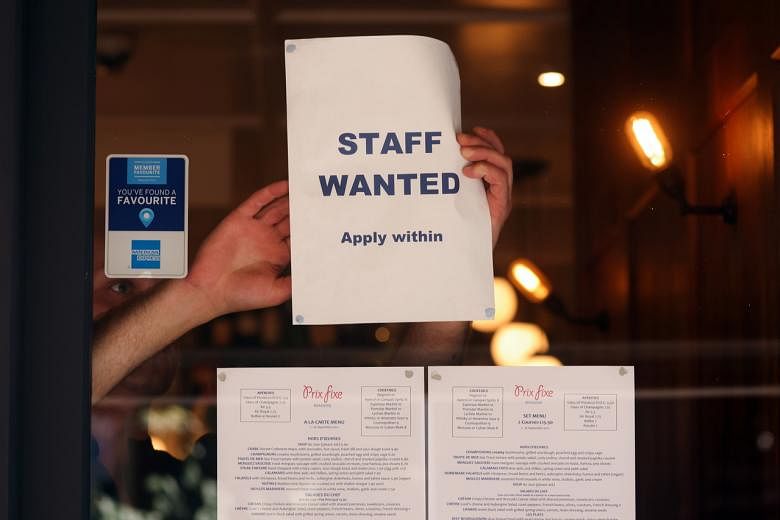LONDON - Vegetables are rotting in the fields because there are no workers to pick them. Restaurants are closing since they cannot source necessary supplies. And empty supermarket shelves are the result of a breakdown in logistics caused by the lack of lorry drivers.
Since it left the European Union at the start of the year and reimposed border controls on EU citizens, Britain has experienced an acute shortage of labour.
But, although there are indications that the country is facing its worst supply chain crisis in half a century, the British government is refusing to relax border controls and allow the inflow of foreign workers.
"Employers should invest in our domestic workforce instead of relying on labour from abroad," read a recent statement from Britain's Home Office, which is responsible for border controls.
As part of its separation arrangements with the EU, Britain has agreed that all European citizens already registered as working would be allowed to stay permanently, if they so wished.
Many EU citizens did precisely that - and in astonishing numbers. Figures due to be published by the end of this month are set to indicate that around six million EU citizens have registered for permanent residence, more than double the number of EU citizens originally thought to be living in the British isles.
But most of those who decided to stay are already factored into the British economy and labour force; the current shortages of workers are largely caused by the absence of EU citizens, who in the past used to come as seasonal labour but now do not, either because they have decided to give up on Britain altogether or because they can no longer get work permits.
The number of workers from the poorest EU countries Romania and Bulgaria - who fill less-skilled jobs in the food industry - appears to have shrunk by up to a quarter in comparison with 2019 levels, while the labour force from other eastern European nations has dropped by around 13 per cent over the same period.
The effects are obvious. Major restaurant chains, such as KFC, Nando's or MacDonald's, have either closed some of their outlets altogether or eliminated items from their menus because they cannot source adequate supplies from vegetable farms or meat processing plants.
And, with an estimated 100,000 shortfall in the number of lorry drivers, supermarkets fear that the temporary stock shortages they are currently experiencing can turn into disaster in the lead-up to Christmas - traditionally their busiest time of the year.
"At the moment, we're running very hard just to keep on top of the existing demand and there isn't the capacity to build stocks that we'd like to see", warns Mr John Allan, chairman of Tesco, Britain's largest grocer.
Under new immigration rules which came into force at the start of this year, applications for work permits are only considered for those with specific skills and higher salary thresholds.

Exceptions have been made for certain sectors in Britain where labour shortages are particularly acute, such as for caregivers of the elderly and infirm. Business leaders are now appealing to the government to offer similar exemptions for workers in the food and transportation sectors.
"There should be short-term visas for Europeans or drivers from anywhere else to come in and help out for three to six months," argues Mr Rod McKenzie, who is responsible for policy at the Road Haulage Association, the country's road transport body.
But the British government continues to reject such appeals. Ministers in London claim that employers should address labour shortages by either training local Brits to take on the jobs or offering better pay for certain professions to attract more workers.
In fact, this is already happening. Since February, wages have increased by almost 7 per cent in Britain's construction industry and by 6 per cent in transportation. Big retailers, such as Amazon or Tesco, are also dangling fat one-off bonuses to employees where the shortages are most keenly felt.
The snag is that, even if these measures are successful, it takes time to change the mix of the labour force. Estimates compiled this week by the Confederation of British Industry (CBI), the country's top employer association, suggest that labour supply problems may last for another two years.
CBI's director-general Tony Danker is angered by the government's refusal to face the facts.
"Standing firm and waiting for shortages to solve themselves is not the way to run an economy," he said earlier this week.
But, for British Prime Minister Boris Johnson, who came to power claiming that separation from the EU will not affect the British economy at all, admitting that realities are proving otherwise will not come easy.


